Is ‘Megxit’ misogynistic?
Prince Harry is calling for the widely used term to be replaced
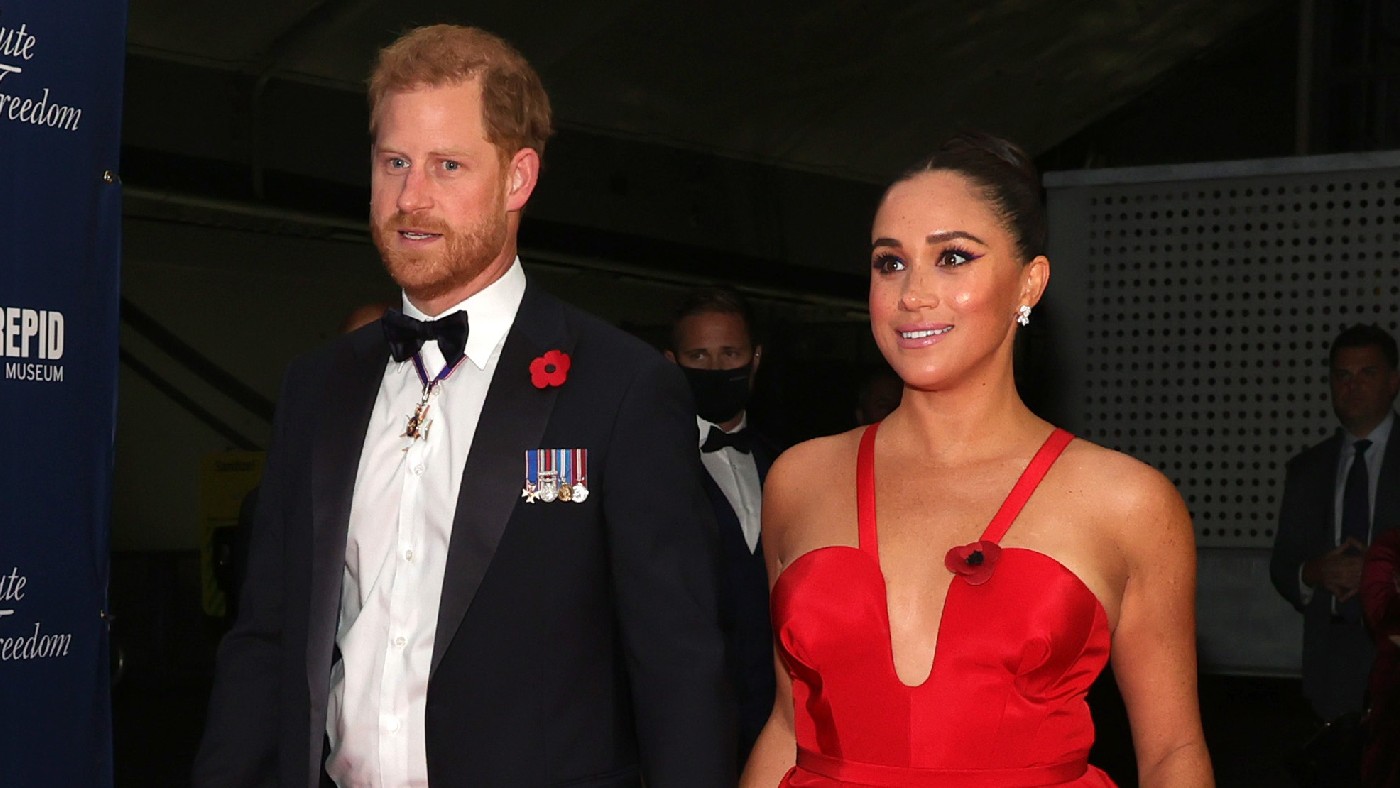
A free daily email with the biggest news stories of the day – and the best features from TheWeek.com
You are now subscribed
Your newsletter sign-up was successful
Prince Harry is on a “mission” to end the use of the portmanteau created to describe his decision with Meghan Markle to step back from royal duties, according to reports.
The Duke of Sussex has argued that the term “Megxit”, used regularly in the UK media, is sexist, “having been created by an online troll to put his wife at the centre of their departure from the working Royal Family”, said The Telegraph.
Speaking to outgoing Twitter co-founder Jack Dorsey during a panel discussion earlier this month organised by Wired magazine, Harry said: “Maybe people know this and maybe they don’t, but the term ‘Megxit’ was or is a misogynistic term.
The Week
Escape your echo chamber. Get the facts behind the news, plus analysis from multiple perspectives.

Sign up for The Week's Free Newsletters
From our morning news briefing to a weekly Good News Newsletter, get the best of The Week delivered directly to your inbox.
From our morning news briefing to a weekly Good News Newsletter, get the best of The Week delivered directly to your inbox.
“It was created by a troll, amplified by royal correspondents, and it grew and grew and grew into mainstream media. But it began with a troll.”
Actually, “Megxit” has “nothing to do with sexism”, wrote The Telegraph’s Michael Deacon. The term was adopted simply because “‘Megxit’ sounds a little bit like ‘Brexit’, a contemporaneous political event of which the duke may be aware”.
“It may of course be argued that the portmanteau places undue emphasis on one half of the couple in question,” Deacon continued. “On the other hand, I think that even the duke would have to concede that ‘MeghanandHarryxit’ would have worked less well as a pun.”
Harry has shown a “princely sense of humour failure”, agreed Judith Woods in the same newspaper. The Sussexes’ “determination to call out every perceived slight as ‘sexist’ bespeaks a toe-curling self-importance”, Woods wrote.
A free daily email with the biggest news stories of the day – and the best features from TheWeek.com
This might “play well with their multimillionaire Hollywood chums across the pond”, but over here “healthy scepticism and a tongue-in-cheek disregard” are defining features of British culture.
I think Harry “is absolutely right”, said freelance journalist Harriet Williamson in The Independent. “Megxit” implies that the Sussexes’s joint decision to lead a more independent life in the US was primarily down to Markle, according to Williamson, who pointed out that “it wasn’t known as ‘Hexit’, or more mutually as ‘Sussexit’, was it?”
Many others within the media appear to share Williamson’s view. A survey of 721 journalists by the Press Gazette journal earlier this year found that half believed portrayals of Markle by some UK publications had been problematic.
And when the couple featured on Time magazine’s 100 most influential people cover in September, the British tabloids faced further “backlash for their sexist coverage”, after trotting out body language experts who claimed that Harry appeared passive and Markle authoritative, Insider reported.
Following the duke’s recent intervention over the use of “Megxit”,The Telegraph claimed on Saturday that the couple had scored at least “one clear victory”. The paper said that the BBC was changing the name of the second part of controversial new documentary The Princes and the Press to “Sussexit” to appease Prince Harry.
However, as of today, on BBC iPlayer it was simply called “Episode 2”, with the first part titled “The New Generation”.
Part two, broadcast on BBC Two on Monday evening, examines the tumultuous period for the Royal Family from 2018 to 2021, and the circumstances that led the Duke and Duchess of Sussex to step down from their senior royal roles in January 2020.
The hour-long episode also looks at the unprecedented privacy actions that the couple have launched against the British media in recent years and includes interviews with Markle’s lawyer, Jenny Afia.
In a rare joint statement, Buckingham Palace, Clarence House and Kensington Palace criticised the documentary’s producers for making “overblown and unfounded claims” and for giving credibility to allegations made by “unnamed sources that are presented as facts”.
Kate Samuelson is The Week's former newsletter editor. She was also a regular guest on award-winning podcast The Week Unwrapped. Kate's career as a journalist began on the MailOnline graduate training scheme, which involved stints as a reporter at the South West News Service's office in Cambridge and the Liverpool Echo. She moved from MailOnline to Time magazine's satellite office in London, where she covered current affairs and culture for both the print mag and website. Before joining The Week, Kate worked at ActionAid UK, where she led the planning and delivery of all content gathering trips, from Bangladesh to Brazil. She is passionate about women's rights and using her skills as a journalist to highlight underrepresented communities. Alongside her staff roles, Kate has written for various magazines and newspapers including Stylist, Metro.co.uk, The Guardian and the i news site. She is also the founder and editor of Cheapskate London, an award-winning weekly newsletter that curates the best free events with the aim of making the capital more accessible.
-
 6 of the world’s most accessible destinations
6 of the world’s most accessible destinationsThe Week Recommends Experience all of Berlin, Singapore and Sydney
-
 How the FCC’s ‘equal time’ rule works
How the FCC’s ‘equal time’ rule worksIn the Spotlight The law is at the heart of the Colbert-CBS conflict
-
 What is the endgame in the DHS shutdown?
What is the endgame in the DHS shutdown?Today’s Big Question Democrats want to rein in ICE’s immigration crackdown
-
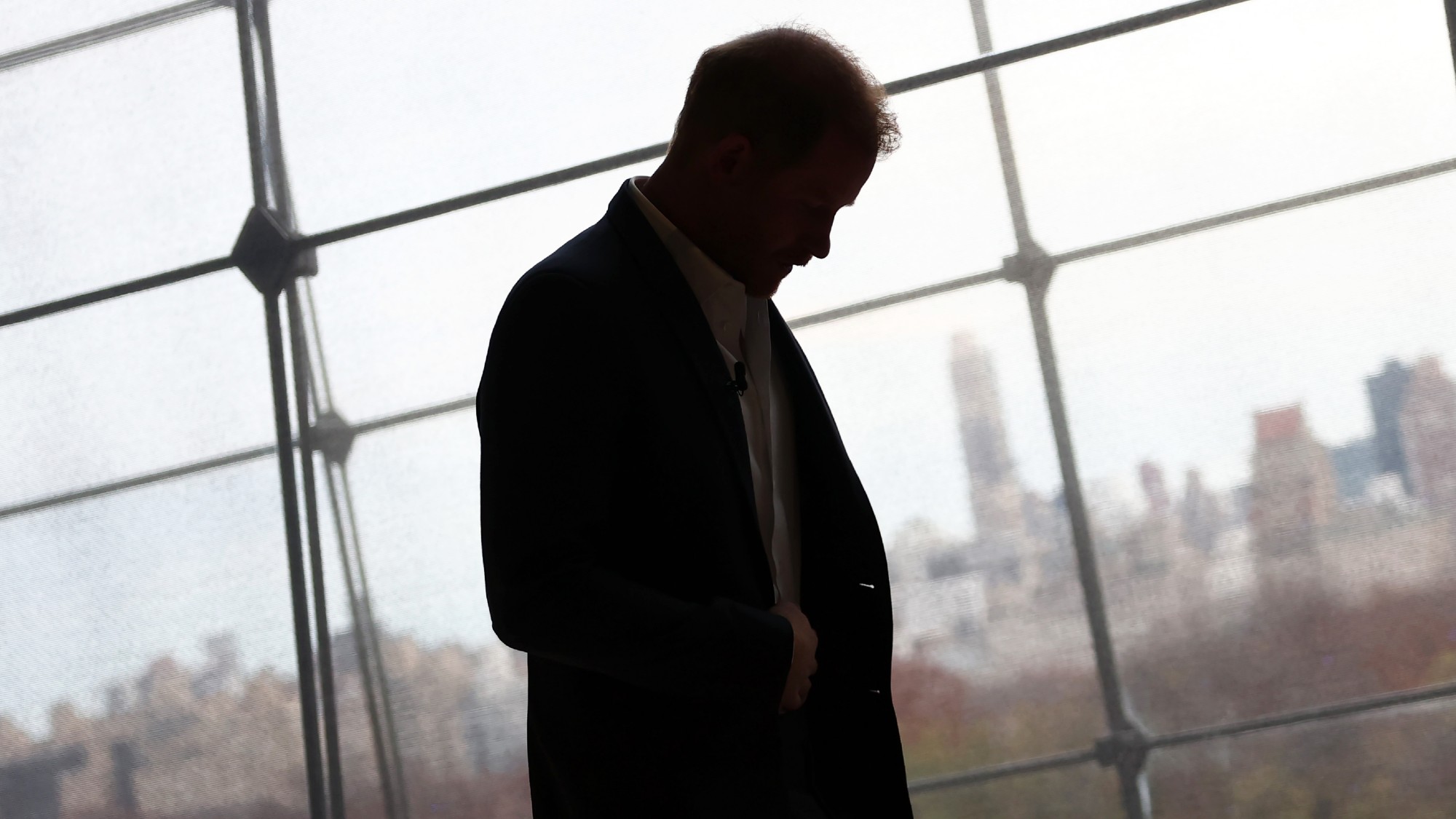 Phone hacking: victory for Prince Harry?
Phone hacking: victory for Prince Harry?Talking Point Even those who do not share the royal's views about the press should 'commend' his dedication to pursuing wrongdoing
-
 Meghan Markle's Netflix show: 'bang on the money' or hopelessly 'cheugy'?
Meghan Markle's Netflix show: 'bang on the money' or hopelessly 'cheugy'?Talking Point The Duchess of Sussex relaunched her Instagram just in time for the trailer for her new lifestyle series
-
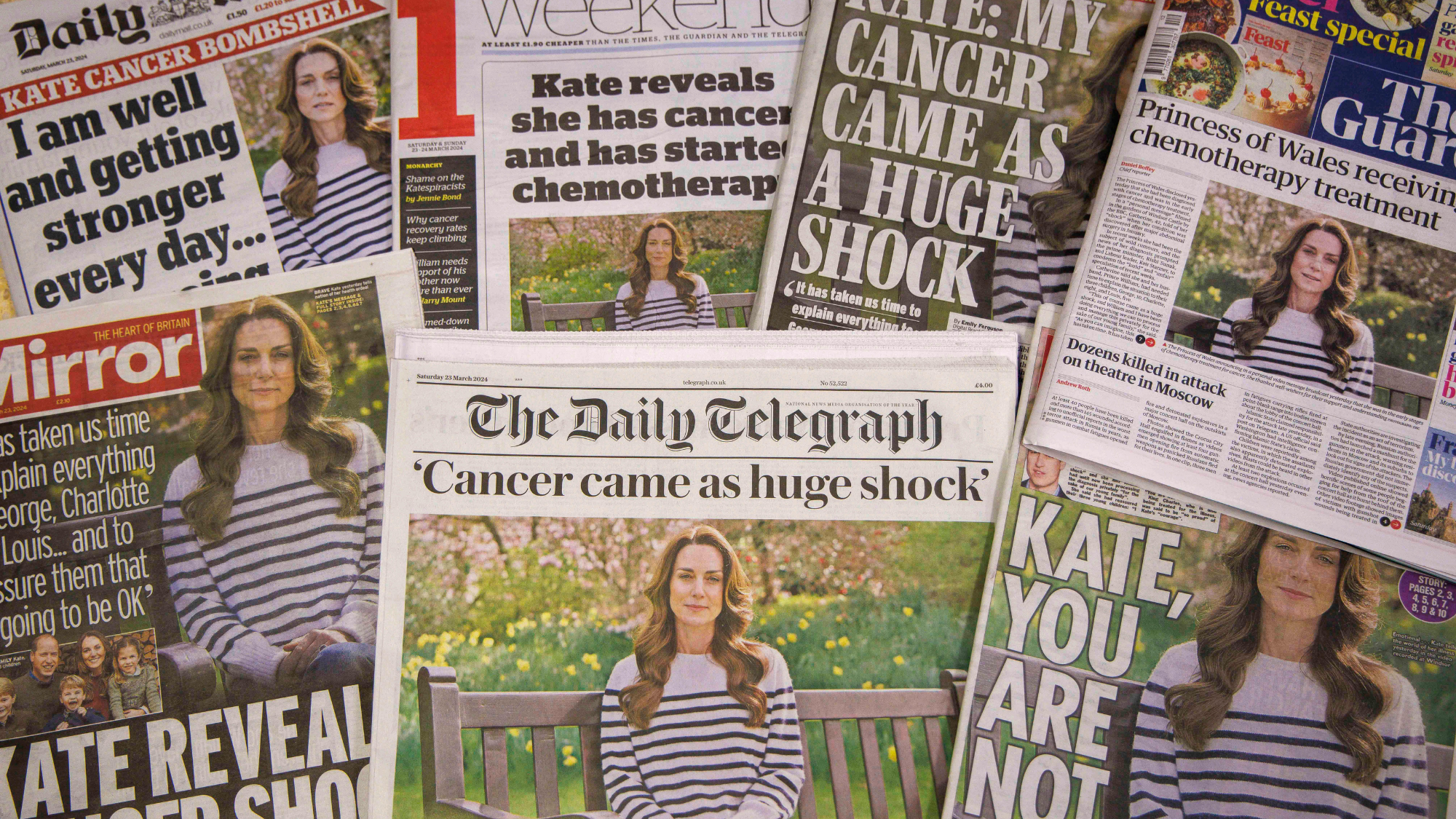 Katespiracy: is the media to blame?
Katespiracy: is the media to blame?Talking Point Public statement about cancer diagnosis followed weeks of wild speculation and conspiracy theories
-
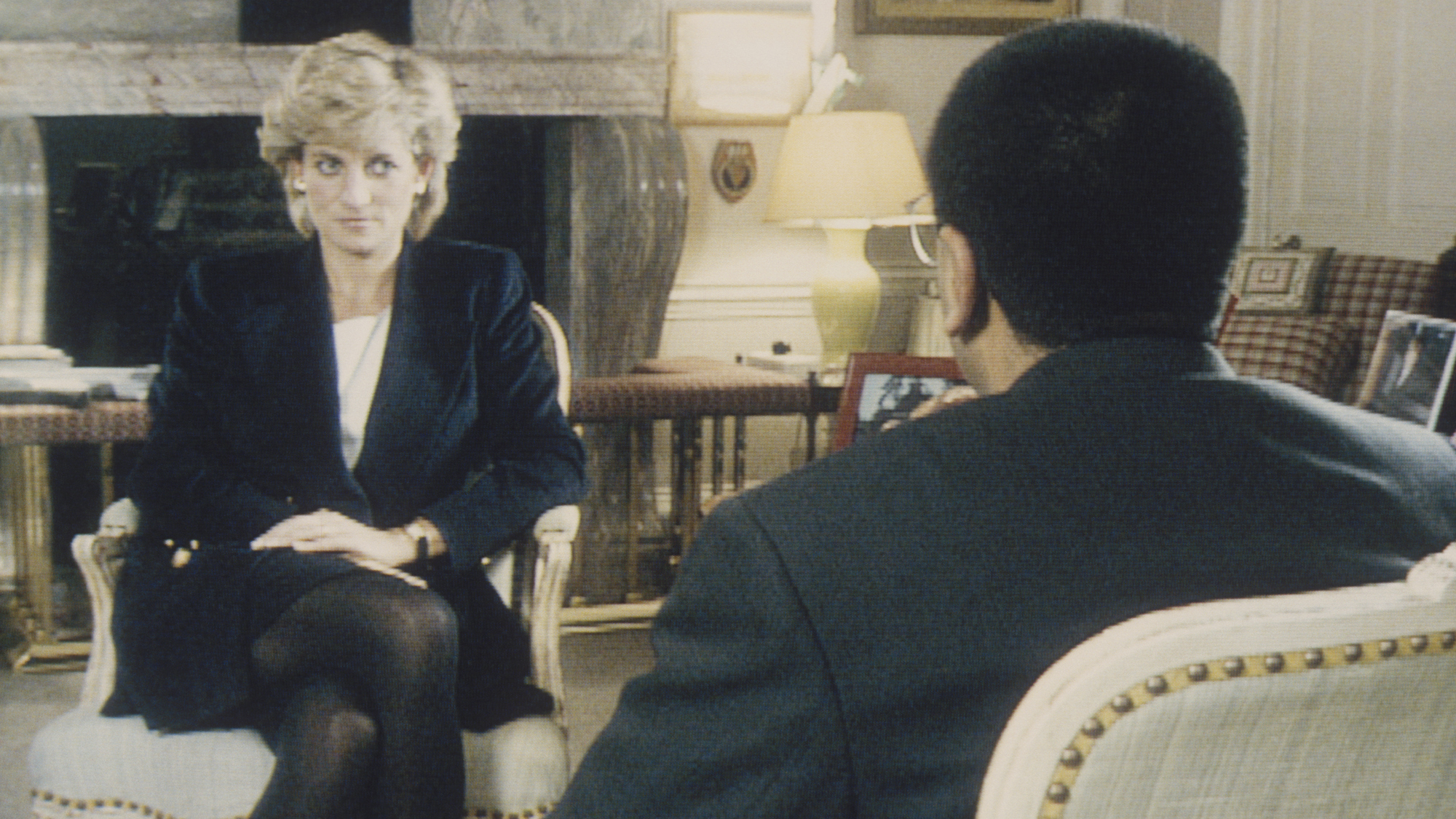 The Princess Diana interview and Martin Bashir's redacted dossier
The Princess Diana interview and Martin Bashir's redacted dossierIn the Spotlight The newly revealed documents show Bashir claimed jealousy and discrimination fuelled allegations against him
-
 Holly Willoughby: TV presenter quits This Morning after 'kidnap plot'
Holly Willoughby: TV presenter quits This Morning after 'kidnap plot'In the Spotlight The 42-year-old abruptly left the ITV flagship show after 14 years as presenter when police made an arrest
-
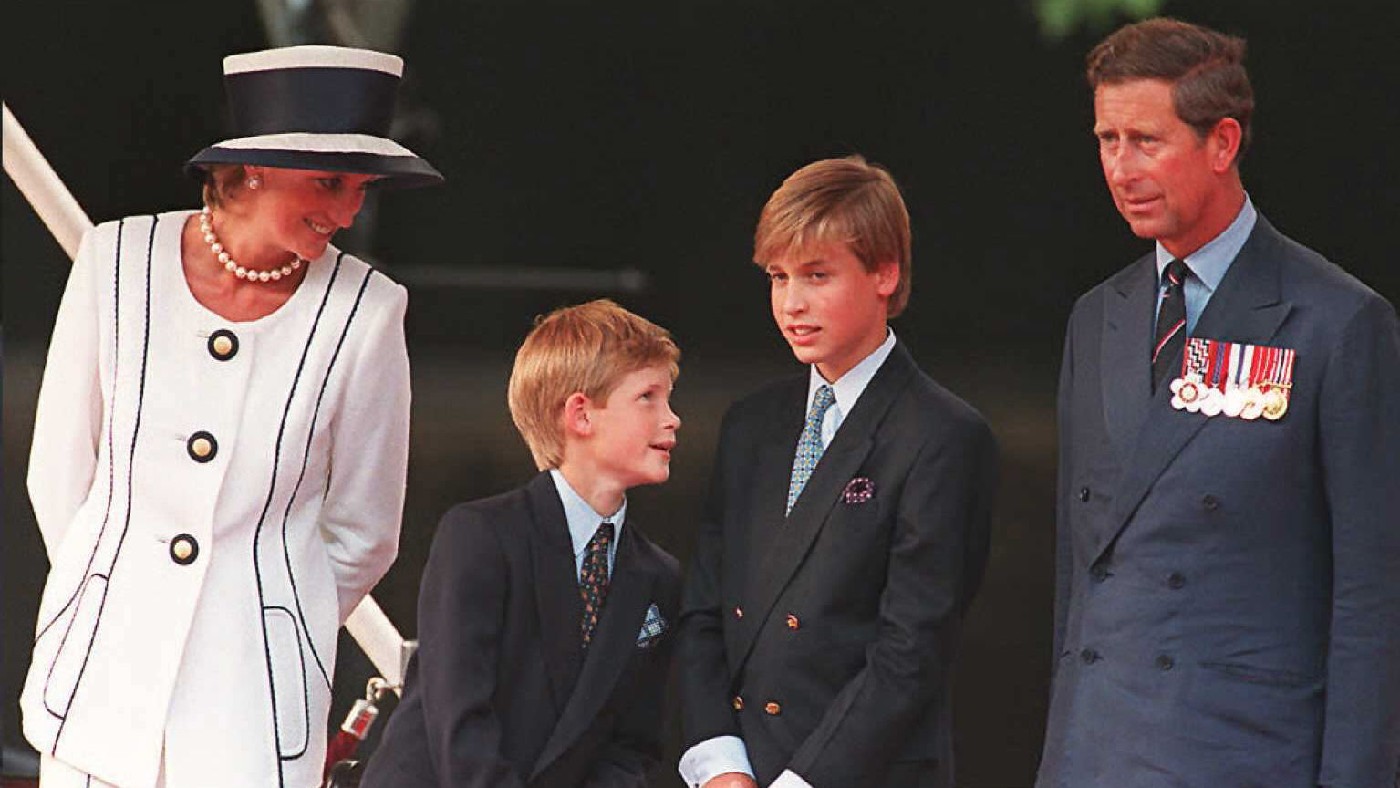 Prince Harry, Princess Diana and the media
Prince Harry, Princess Diana and the mediaTalking Point Pundits say Diana would be ‘appalled’ by her son’s actions but might she have approved?
-
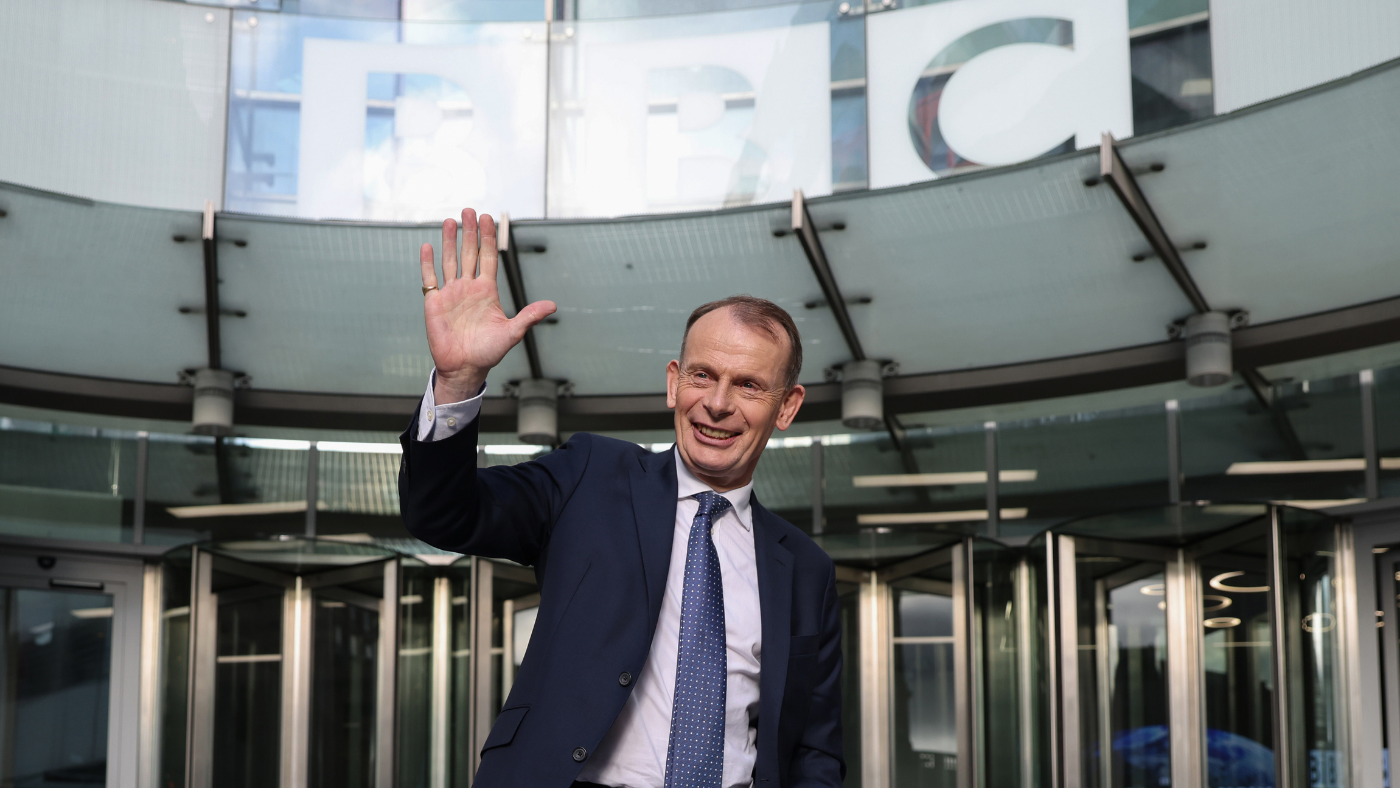 The BBC’s battle to retain top talent
The BBC’s battle to retain top talentIn the Spotlight Andrew Marr exits as broadcaster launches ‘major reshuffle’ of remaining senior presenters
-
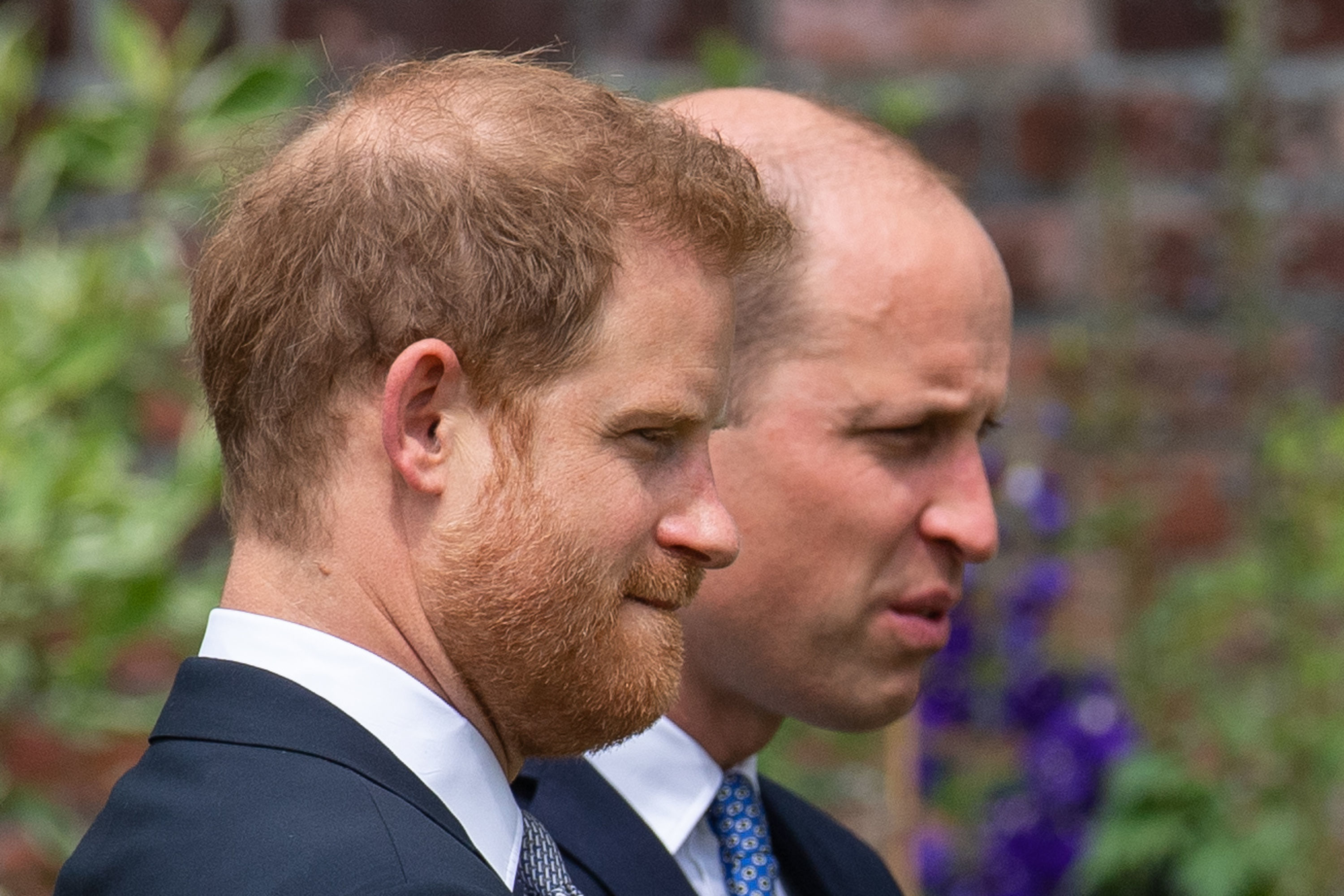 Five revelations from the BBC’s Princes and the Press that sparked a royal feud
Five revelations from the BBC’s Princes and the Press that sparked a royal feudUnder the Radar Royals furious about two-part documentary that shines light on inner workings of the households